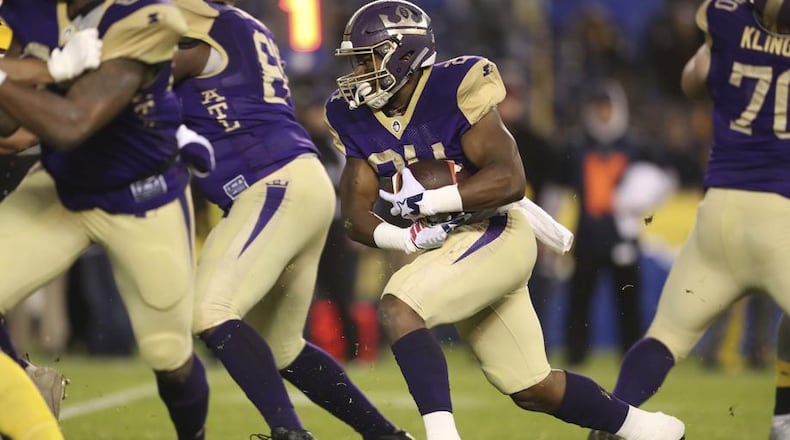The owner of a local sports talk radio station is hoping not to be forgotten during bankruptcy proceedings over the defunct Alliance of American Football.
Dickey Broadcasting Company filed a lawsuit earlier this month against the Alliance and the Atlanta Legends — the fledgling league's Atlanta team — seeking more than $16,000 that Dickey says they owe for The Fan's role as the official "radio home of the Atlanta Legends."
The station, 680/93.7 The Fan, was contracted as the exclusive broadcaster of Legends games, including pre- and post-game shows, weekly call-in segments and a coach’s show.
The league, which launched after Super Bowl LIII at Mercedes Benz Stadium in downtown Atlanta, abruptly shutdown April 2 after one of its chief financial backers — Tom Dundon — reportedly pulled back on a $250 million financial commitment. Games for the eight teams in the fledgling league were immediately suspended.
The league declared bankruptcy April 17.
“This week, we made the difficult decision to suspend all football operations for the Alliance of American Football,” the league wrote on its website after news broke that it was being shuttered. “We understand the difficulty that this decision has caused for many people and for that we are very sorry.
“Due to ongoing legal processes, we are unable to comment further or share details about the decision,” the league added.
In a payment request to the Legends on April 16, Dickey threatened to take legal action if the matter was not immediately resolved, saying, "If there is any reason for not paying this claim in full, write to us immediately."
The broadcaster, however, filed its lawsuit the next day as the Alliance sought bankruptcy protection.
Neither Marion Stokes, attorney for Dickey, or representatives for the Legends or the Alliance of American Football could be reached for comment.
Kennesaw State University economics professor J.C. Bradbury said investing in the new league was always going to be a gamble. Repeated attempts to create an additional football league to compliment or compete with the NFL — including the UFL and XFL — have failed.
“This absolutely was a risky investment,” he said. “All the parties involved had to have known that very few other leagues have succeeded.”
About the Author
The Latest
Featured

